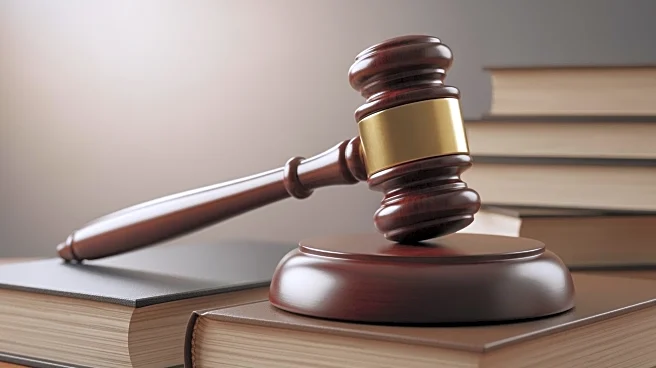What's Happening?
The American Constitution Society has appointed Phil Brest, a former senior White House Counsel under Joe Biden, as its new president. Brest, who played a significant role in directing the Biden administration’s judicial nominations, is set to assume
his new role on January 5, 2026. He succeeds former Senator Russ Feingold, who led the organization from 2020 until his recent departure. This leadership change comes at a time when progressive legal organizations are seeking new direction amidst challenges posed by the Trump administration, which has focused on appointing conservative lawyers to the federal bench.
Why It's Important?
The appointment of Phil Brest as president of the American Constitution Society is significant in the context of ongoing judicial and legal challenges in the U.S. The organization, known for its progressive stance, is positioning itself to counterbalance the conservative shift in the judiciary under the Trump administration. Brest’s experience in judicial nominations could play a crucial role in shaping the society’s strategies to influence legal discourse and policy. This change in leadership may impact the broader legal community, potentially affecting how progressive legal principles are advocated and implemented.
What's Next?
As Phil Brest prepares to take on his new role, the American Constitution Society is likely to focus on strengthening its influence in the legal community and advocating for progressive judicial appointments. Brest’s leadership may lead to increased efforts to challenge conservative judicial appointments and promote legal reforms aligned with progressive values. The society’s actions could prompt reactions from conservative legal groups and political leaders, potentially leading to heightened debates over judicial appointments and legal policies.
Beyond the Headlines
The leadership change at the American Constitution Society highlights the ongoing ideological battles within the U.S. legal system. The society’s efforts to promote progressive legal principles may face resistance from conservative factions, reflecting broader cultural and political divides. This development underscores the importance of judicial appointments in shaping the legal landscape and influencing public policy, with long-term implications for civil rights, social justice, and legal reforms.














